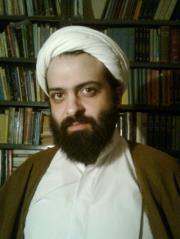In the last 33 years since the Islamic Revolution, Iran has been a kind of paradise for Islamic clerics who gained power and rule over the country. But not for all of them. Mohammad Sadegh (Arash) Honarvar Shojayi, a cleric and a blogger is one who is currently sharing the pain of imprisonment for his ideas and writings along with many other prisoners. Has the Islamic Republic democratized repression? In October 2011, after one year of jail, the blogger was sentenced to four years in prison and lashes.
Arash Honarvar Shojayi had online profiles on Facebook, Twitter, and a blog. He is a critic of the concept of Guardianship of the Jurists (Vlayat Faqih), which means leadership under one cleric, the position currently held by Ayatollah Ali Khamenei. He was accused of propaganda activities and activities against national security, as well as defaming the regime and the clergy. He was released recently due to health problems, but arrested again after an interview. He has been on hunger strike since last Monday.
 Youth for Human Rights blog says [fa]:
Youth for Human Rights blog says [fa]:
Arash Honarvar Shojayi had been among political prisoners in section 350 in Evin Prison but he was transfered to section 325, among jailed clerics who do not share his critical ideas. The authroities warned if he continues his hunger strike, nobody in that section has right to receive any phone calls. Such warnings are made to provoke other prisoners to raise pressure on Mohammad Sadegh Honarvar Shojayi.
In 2010, Mohamad Sadegh Honarvar Shojayi published several posts regarding human rights violations in Iran against Shi'a religious leaders. The blogger quoted Amnesty International's 1998 report on Iran:
Since the establishment of the Islamic Republic of Iran in 1979 serious human rights violations have continued. Victims have included a broad range of political opposition from members of left-wing groups to monarchists, as well as ethnic and religious minorities. There has also been a pattern of restrictions placed on Shi’a religious leaders opposed to fundamental tenets of the Iranian political system such as velayat-e faqih.
In the Islamic Republic, even some clerics, do not favor of the regime.




1 comment